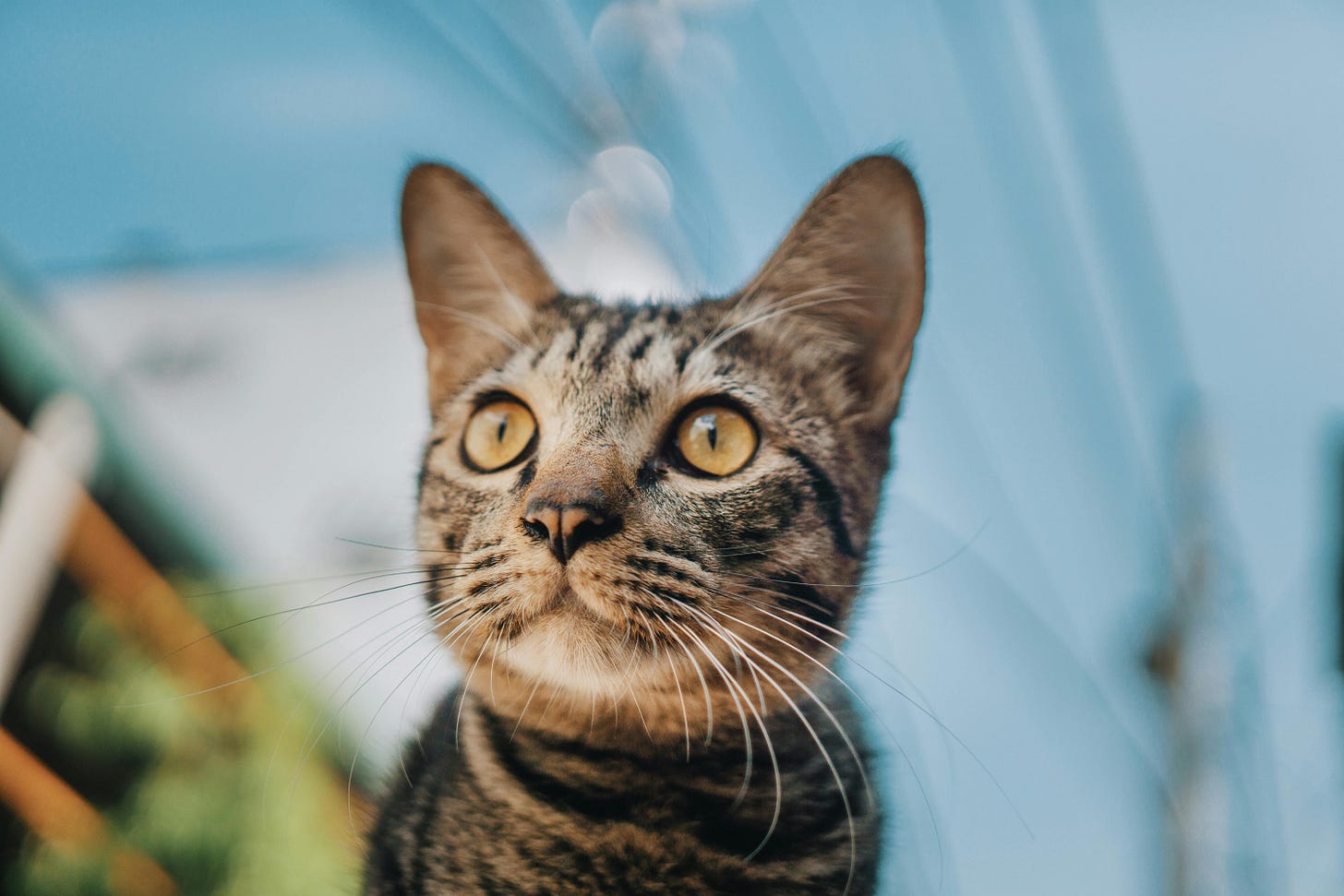The Underground Movement That’s Saving Cats from FIP
The truth about FIP, the treatment saving lives, and what to do if your vet isn’t sure.
Hey Whisker Crew,
This one hit close to home.
When Mia was declining, I remember having to do bloodwork for her often. To check on her kidney disease, and at the end, her lymphoma. It wasn’t FIP in her case, but that fear and uncertainty? I’ve lived it. And if you’ve ever been in a similar place, today’s newsletter is for you.
This week on the Golden Whiskers Podcast, I sat down with Dr. Lisa Fiorenza to talk about a disease that used to be a guaranteed goodbye: FIP—Feline Infectious Peritonitis.
And the big news? It’s no longer a death sentence.
Listen to a brief clip of my interview with Dr. Lisa here…
🧬 What is FIP—and why does it matter?
FIP is caused by a cat-specific coronavirus that’s incredibly common. Over 90% of cats will catch this virus in their lifetime, usually showing mild signs like a little cold or stomach upset. For most cats, it clears on its own in a week or two.
But in a small number of cats—especially kittens under 2 or seniors over 12—the virus mutates into a much more serious form, triggered by stressors like vaccines, surgery, or environmental changes.
Until recently, there was no treatment. If your cat was diagnosed with FIP, there was nothing you could do. That’s why it carried such a heavy emotional weight for so many cat parents.
💊 The game-changer that changed everything
In 2018, a breakthrough treatment called GS (short for GS-441524) emerged from research at UC Davis. It started showing incredible success in curing FIP. But the FDA didn’t approve it for veterinary use, and for years, vets weren’t legally able to prescribe it.
That didn’t stop cat lovers from stepping up.
An underground movement formed—cat parents, volunteers, and some brave vets working behind the scenes to get GS to the people who needed it. And it worked. Cats started recovering.
Dr. Lisa got involved in 2020, after one of her patients opened her eyes to what was happening. Since then, she’s helped treat over 70 cats in her own practice and has supported other veterinarians around the country in diagnosing and managing FIP cases.
🩺 What to look for—and why it’s hard to diagnose
The early signs of FIP can be subtle—low energy, appetite changes, weight loss. In the wet form, fluid builds up in the belly or chest. In the dry form, symptoms can be neurological or show up as inflammation in the eyes.
What makes it tricky is that FIP can look like a lot of other things. It doesn’t always show up on lab work the way you’d expect. Sometimes blood protein levels are off—globulin is high, albumin is low—but not always. This is why FIP often goes undiagnosed or misdiagnosed.
Dr. Lisa emphasizes the importance of piecing everything together—the history, symptoms, stressors, and lab values. She now offers virtual consultations worldwide to help cat parents and their vets figure out whether FIP is on the table and what steps to take next.
✅ What You Can Do Right Now
Even if your cat seems healthy, having this knowledge ahead of time could make all the difference. Here’s what you can do:
1. Learn the signs
If your cat is showing low energy, eating less, losing weight, or has a swollen belly, don’t wait. It could be something minor—but if it lingers, get it checked out.
2. Ask for blood work
Ask your vet to check globulin and albumin levels and look at the globulin-to-albumin ratio. These can sometimes provide key clues.
3. Push for answers
If something still feels off and there’s no diagnosis, advocate for your cat. Ask for more testing or a second opinion.
4. Know that hope is real
FIP is now treatable, and cats are surviving. You just need the right information, support, and treatment plan.
🐱 This Week’s Cattitude Prompt:
Have you ever had to advocate for your cat when something felt off—but you didn’t have answers yet? What helped you keep pushing? What do you wish you’d known earlier?
🎧 Listen to the full episode:
“FIP No Longer a Death Sentence: Breakthrough Treatment + Holistic Care with Dr. Lisa Fiorenza”
👉 Click here to listen or search Golden Whiskers wherever you get your podcasts.
I know this isn’t a light or funny topic—but it’s an important one. And if this clip helps one cat parent take action or find hope where they thought there was none, it’s worth every second.
Thanks for being here, thanks for loving your cats, and thanks for being part of this community.
Until next time,
💛 Scott | Golden Whiskers 🐾




Just a note to say Vitality Science as a company was key to my cat’s better life. Their Immune Gold supplement has turmeric. But of course a great vet is key.
https://vitalityscience.com/could-fenbendazole-treat-cancer-in-dogs-and-cats/